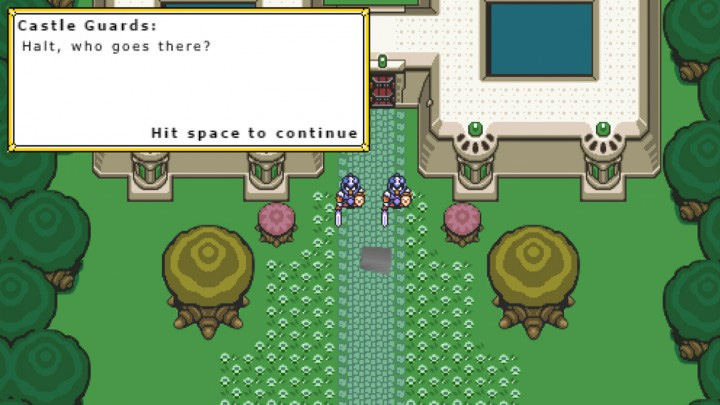Turns out you can't stop a gamer from roleplaying – even when they aren't given a role
According to human-computer interaction researchers

Fighter, mage or rogue? The holy trinity of RPG archetypes is etched into the soul of most gamers. So much so that they'll pick one and stick with it, even when it's not demanded of them.
That's according to human-computer interaction researchers from North Carolina State University, who built an entire RPG to test their theories about roleplaying.
You can play it here if you like – it's a pretty simple browser-based RPG in which you're tasked with saving a kingdom. The only difference from most games is that you play as a weird grey prism rather than a dashing hero – that's so that players couldn't infer anything about the physical attributes of their character.
Assigned Roles
"We wanted to know how, if at all, having a role influenced player behavior," said Ignacio Domínguez, lead author of a paper on the work. "We also wanted to know if it mattered whether the role was assigned versus selected by the player."
The researchers got 210 different people to play the game, and tracked what they did. Seventy-eight of the players were assigned as a fighter, mage or rogue, 91 were allowed to choose a role, and 41 were given no role – they simply began playing.
At various points they were asked to make a multiple-choice decision where the choices roughly aligned with the three character archetypes. When asked to choose a weapon, for example, the player could pick and axe, staff or set of daggers.
"We found that people's behavior was consistent with their role, regardless of whether it was assigned or chosen," Domínguez said. "What's more, we found that people's gameplay was consistent with a single role even if they didn't have one. In other words, people exhibit consistent, role-based behavior even if they are given no information about what their role should be."
Get daily insight, inspiration and deals in your inbox
Sign up for breaking news, reviews, opinion, top tech deals, and more.
Narrative Perspective
Dominguez said that the findings could be used both to inform game development – in terms of focusing content creation on actions consistent with character roles – and for researchers studying gaming, who need to account for roles within games or face the possibility of their research being skewed.
Rogelio Cardona-Rivera, another co-author added: "Our study is also interesting from a narrative perspective, because it sheds light into how players cast themselves as characters in an unfolding narrative during gameplay."
The paper describing the experiment will be presented in May at the ACM Computer-Human Interaction conference in San Jose.
